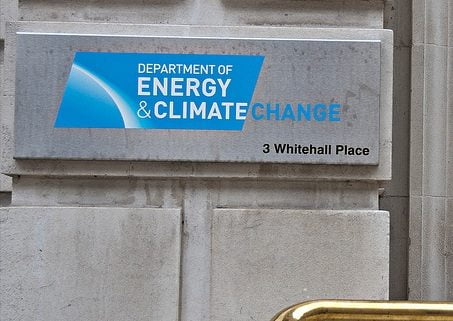

Energy
Government admits renewables cut could mean 63 million tonnes more CO2
On Thursday the UK Government published an Impact Assessment on its plans for the early closure of the Renewables Obligation to onshore wind, a policy which will have a disproportionate impact on Scotland. Early closure of support for onshore wind may only save 30p on annual electricity bill.
Published as part of a suite of documents for the new Energy Bill, the Impact Assessment counts the costs and benefits of the early closure of the Renewables Obligation, despite government still not having published the grace periods for projects that should fall outwith the scope of this policy.
The Impact Assessment shows that:
- Lifetime CO2 emissions could be up to 63MtCO2e higher than they would otherwise have been
- Under the central estimate, total lost benefit to communities would be around £1m a year
- Under the central estimate, there would be around a £0.30 (0.05%) reduction on the average annual household electricity bill
Michael Rieley, Senior Policy Manager at Scottish Renewables, said: “We have consistently argued that this policy can only hinder the UK’s efforts to meet binding climate change targets, and the government has now admitted their decision could increase the UK’s carbon emissions by 63 million tonnes.
“The decision to close support for onshore wind has caused a ripple effect of uncertainty throughout the renewables industry, removes one million pounds a year from local communities and may only end up saving 30 pence on the annual household electricity bill.”
Mr Rieley continued, “What we need now is for the UK Government to set out fair and reasonable grace periods as soon as possible for those projects that will fall outwith the scope of this decision.”


 Environment12 months ago
Environment12 months agoAre Polymer Banknotes: an Eco-Friendly Trend or a Groundswell?

 Features11 months ago
Features11 months agoEco-Friendly Cryptocurrencies: Sustainable Investment Choices

 Features12 months ago
Features12 months agoEco-Friendly Crypto Traders Must Find the Right Exchange

 Energy11 months ago
Energy11 months agoThe Growing Role of Solar Panels in Ireland’s Energy Future




























